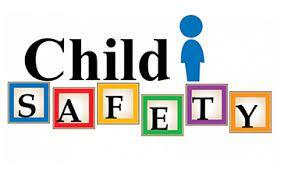
Gyanaj could be a safe house for anyone and everybody to find out, grow, and higher themselves. that’s mirrored in an awesome majority of our students United Nations agency conduct themselves responsibly.
We area unit pleased with this reality.
And we area unit committed to keeping Gyanaj safe for each student and pioneering on-line safety.
Training: Child Safety training sessions for students and their parents, teachers, and employees to establish best practices for online behaviour.
Policy: Regular updates to our policies to reflect any necessary interventions that are required
Technology: Building necessary features to keep Gyanaj a safe learning space for all.
We area unit pleased with this reality.
And we area unit committed to keeping Gyanaj safe for each student and pioneering on-line safety.

The composition of the population of India reveals that India possesses the largest population of children if we make a comparison with other countries of the world. As per Census 2011, there are 472 million children in India under the age of 18 years, they represent 39 percent of the total population of the country. Since the child in any society lacks experience, level of understanding and information about do’s and don’ts, his/her protection becomes an important issue world over. Protection of Child Rights is a complex area of work that demands a multi-disciplinary approach and interdepartmental linkages along with the role of professionals and skilled persons.
- To create awareness on basic knowledge of Child Rights and Child Protection and to contribute towards an enabling safe and child friendly environment for children in all areas of society.
- To access the basic knowledge on child protection by the registered viewer, anytime and anywhere through online procedure.
- To develop a brief knowledge on Child Rights and United Nations Convention on Rights of the Child (UNCRC).
- To understand the concept of Childhood and Child Development
- To explore the understanding of some forms of violence, exploitation and abuse that child experiences and/or are at risk of facing and
- To understand different forms of child protection mechanisms to safe-guard the rights of children.
- Centre for Child Protection (CCP) has designed the online course named ‘Basics of Child Protection‘ for all interested people particularly working in the field of Child Rights as well as for other enlightened people.
- The course is Paid for all aspirants.
- The course is designed on the line of distance learning mode and there is no need of attendance.
- The course content is designed in the form of self-study material.
- Course content is structured in the form of power point presentation slide which can be easily accessed by the aspirant.
- The registered viewer can download the course modules from the website of CCP for the purpose of study. The Course content is the sole property of CCP-SPUP, thus if a registered viewer uses course content for other than study, then it will invite legal action.
- Any legal dispute arising will be settled in Jaipur jurisdiction.
- Person of any age-group can apply for online registration, however, it is expected that aspirants must have a basic understanding of online operations along with basic knowledge of the English language.
- To enrol in the course require online registration.
- The registration process of the course will seek basic information of the aspirant including email ID and mobile number which will help him/her to get a login ID and Password.
- The aspirant who successfully login the course can go through the course modules by opening appropriate link of the CCP website.
- The course content is divided into four modules. Each module is structured with five objective and multiple-choice questions which have been presented in the last slide.
- After an appropriate understanding of course content, the student is required to answer the objective and multiple-choice questions given in each module. Assessment of the registered viewer will take place on the basis of the answer.
- The registered viewer who successfully completes the course and secures a minimum of 80% marks in the assessment process can obtain a certificate of success after making a payment of Rs. 150.00 ( Rupees One Hundred Fifty only) in the bank account of ******** (Name: ****) through Net Banking, UPI, Credit/Debit/ATM Card.
- If the registered viewer fails to score 80% marks, he/she may appear in the course again anytime through the registered dashboard.
- It enhances understanding of the registered viewer regarding child rights and child protection issues.
- Registered viewer can identify more issues relating to Child Protection in the society
- It sensitizes and helps in developing a responsible behaviour and action while dealing with children.
- It provides clarity in registered viewer about application of laws relating to children.
- It raises concern of child protection among stakeholders through active advocacy and
- The registered viewer can suggest the appropriate agencies in taking legal action about child related cases.
Introduction to Child Rights
- Learning Objectives
- Introduction
- Meaning and definition of Child Rights
- Why do children need special rights?
- Importance of Child Rights
- Evolutions of Child Rights
- United Nations Convention on Rights of the Child (UNCRC)
- Types of Child Rights
- Child Rights in the constitution of India
- Child Rights Stakeholders
- Check your Understanding
Childhood and Child Development
- Learning Objectives
- Introduction
- Importance of Childhood
- Characteristic of children exhibiting normally
- Childhood as Socio-Cultural construction
- Socio-Cultural components affecting Childhood
- Child Development
- Theories of Child Development
- Stages of Childhood/Development
- Area of Child Development
- Check your Understanding
Child Protection: Issues and Concerns
- Learning Objectives
- Introduction
- What is Child Protection
- Status of Child Protection
- Profile of children in India
- Child Protection Issues with consequences
- Child in Conflict with Law
- Crime Against Children
- Child in Need of Care and Protection
- Check your Understanding
Child Protection Mechanisms
- Learning Objectives
- Introduction
- Child Protection Mechanisms
- International Conventions and Constitutional provisions on Child Protection
- National Plan of Action and Policies on Child Protection
- Major Child protection Laws in India
- Governance and Planning
- Major Child Protection Schemes and Services
- Monitoring and follow-up mechanisms
- Principles of working with children
- Check your Understanding
